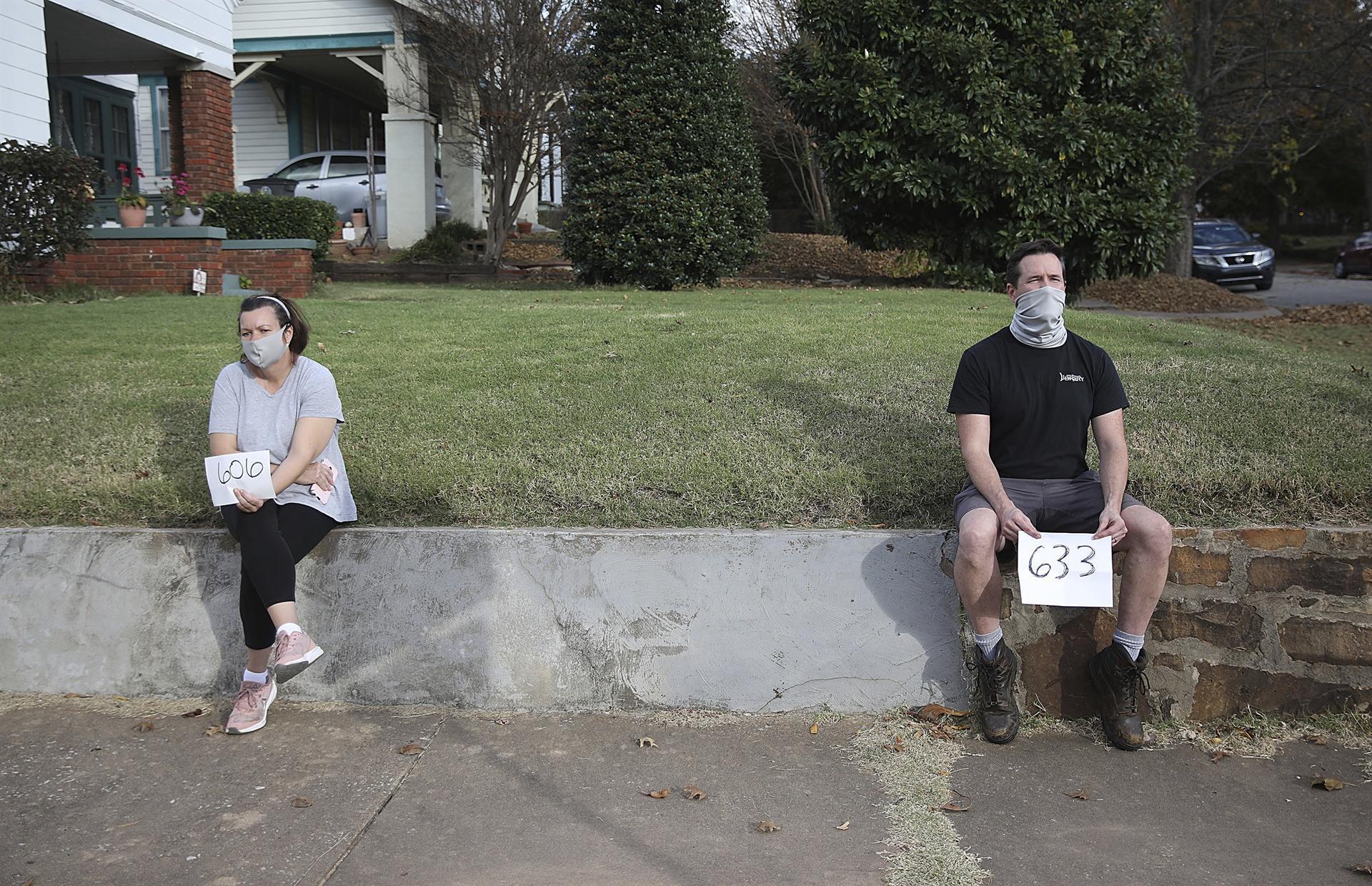
The United States recorded its 10 millionth case of the coronavirus on Nov. 9, according to a count by Johns Hopkins University, the same day that Pfizer and BioNTech announced their vaccine showed 90 percent effectiveness.
Shortly before 1400 GMT on Nov. 9 the tracker by the Baltimore-based university showed 10,018,278 cases recorded in the United States since the pandemic began, and 237,742 deaths.
Both are the highest tolls in absolute terms in the world.
The United States is now well into its third and by far biggest surge of its epidemic.
But interim results provided by Pfizer and BioNTech offered hope for a game changer in the trajectory of the pandemic.
According to preliminary findings, protection in patients was achieved seven days after the second of two vaccine doses, and 28 days after the first.
Outgoing President Donald Trump, heavily criticised for his handling of the health crisis, described the breakthrough as "great news," while top U.S. pandemic expert Anthony Fauci said the result was "extraordinary."
President-elect Joe Biden meanwhile urged Americans on Nov. 9 to wear masks to prevent the spread of coronavirus and not consider it a "political statement," as he named the scientists who will lead his administration's response to the pandemic.
"We're still facing a very dark winter," Biden said. "The bottom line: I will spare no effort to turn this pandemic around once we're sworn in on January 20."
Biden applauded the vaccine announcement, but insisted a mask still remains "the most potent weapon" against the virus, and that "today's news does not change that urgent reality."
World may be tired, but virus 'not tired of us'
Meanwhile, the World Health Organization's chief called Monday on everyone to keep fighting COVID-19, warning that while we may be sick of battling the pandemic, the virus is "not tired of us".
Speaking to WHO's main annual assembly, which resumed on Nov. 9 after being cut short in May, Tedros Adhanom Ghebreyesus also hailed the election of Biden as the next U.S. president, voicing hope it could signal tighter global cooperation to end the pandemic.
It was vital, he said, for people to follow the science and resist the urge to turn a blind eye to the virus. "We might be tired of COVID-19. But it is not tired of us," he said.
Tedros, speaking from quarantine after coming in contact with someone who tested positive for COVID-19, warned that the virus preys on weakness.
"It preys on those in weaker health, but it preys on other weaknesses too: inequality, division, denial, wishful thinking and wilful ignorance," he said.
"We cannot negotiate with it, nor close our eyes and hope it goes away."
"It pays no heed to political rhetoric or conspiracy theories," he said.
"Our only hope is science, solutions and solidarity."
His comment came after COVID-19 has killed more than 1.25 million people and infected over 50 million worldwide since it first surfaced in China late last year.